Ride Along in Toyota’s Hydrogen Fuel Cell Bus
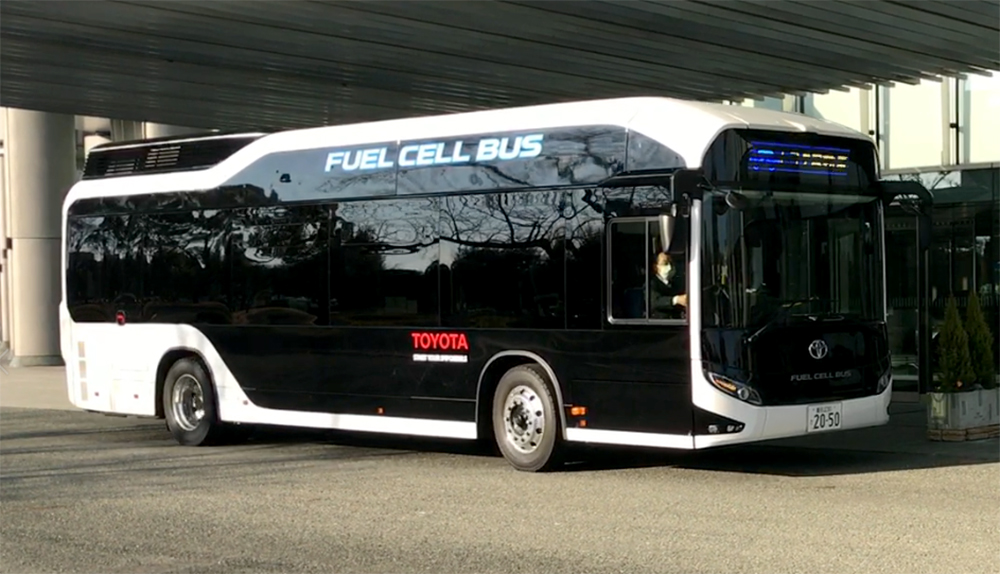
Ready for 2020 Olympics, vehicle emits only water, is whisper quiet and has a much smoother ride than a typical diesel bus.
Next year’s 2020 Olympic and Paralympic games in Tokyo, Japan, will feature an innovative mass-transit vehicle,and we got the chance to ride in it outside of Toyota City, Japan. This new hydrogen fuel-cell bus just might be the future of mass-transit.
The Toyota Sora (sky, ocean, river and air) hydrogen fuel-cell bus is really just a combination of existing technology and vehicles redesigned for another purpose – moving large amounts of people.
Toyota started with a typical bus from their subsidiary HINO motors. Then, they took the fuel-cell powertrain found in the Toyota Mirai car and merged the two together.
The fuel cell stack is a solid polymer electrolyte with two packs boasting 114KW each and a nickel-metal hydride battery. A single motor delivers 113kW of energy in this innovative propulsion system. It emits only water vapor through its operation and it is a renewable fuel cell.
Putting this powertrain in a bus resulted in a whisper quiet, 79-passenger bus with many additional benefits for the driver and the passengers.
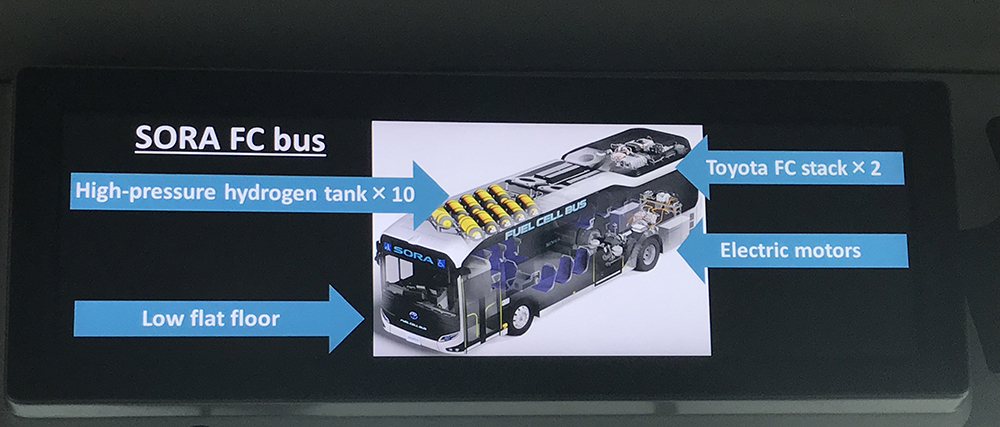
For example, Toyota engineers placed the fuel stacks in the roof instead of under the second-row of seats like a typical diesel engine would sit. This dramatically reduces the heat inside the bus. During the summer months, the diesel engine’s heat rises up and warms the entire cabin making for an often uncomfortable ride. With the FC powertrain, this heat is completely gone allowing for a much more pleasurable riding experience.
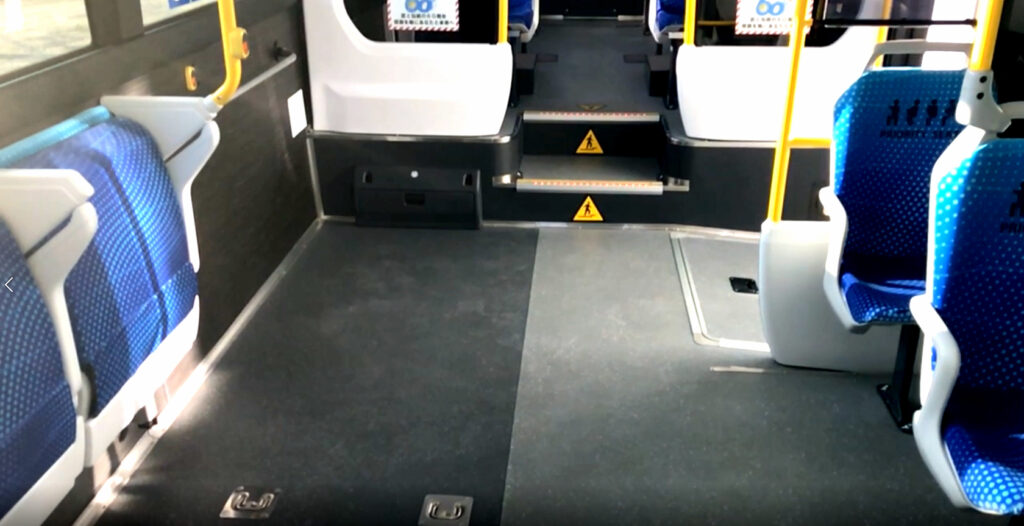
Also, they installed horizontal seats in the handicap seating area allowing for additional seating when not in use for a wheelchair.
Engineers also added a bus peripheral monitoring system to help the bus driver. This system uses eight high-definition cameras to alert the driver to pedestrians and bicycles around the bus.
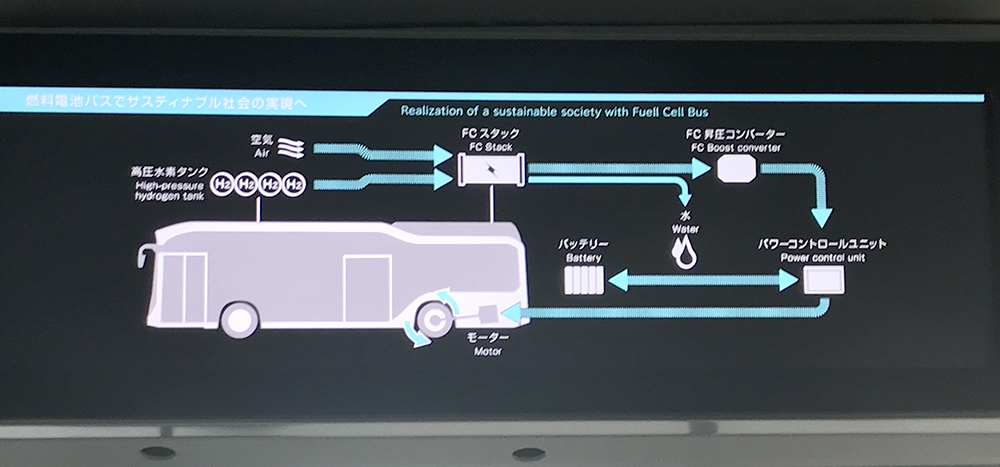
There is also an automatic arrival control feature which assists in parking the bus near stops by using automatic steering and braking to stop the bus approximately 3 to 6 cm from a guidance line on the road.
Toyota added a new ITS connect system which helps the bus utilize vehicle-to-vehicle and vehicle-to-infrastructure communication leading to safer driving situations.
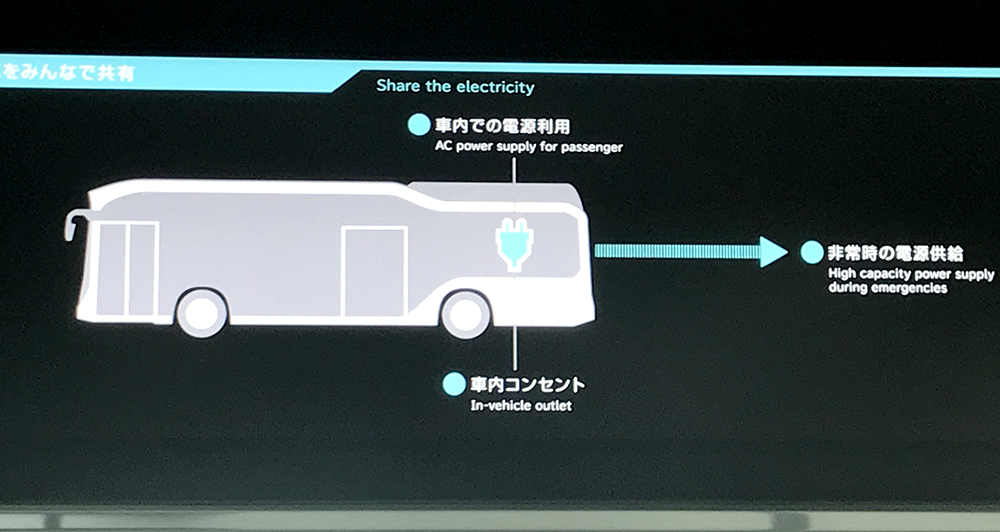
Finally, there is an emergency power source in case disaster strikes. This power source provides external output of 9kW maximum output and electricity supply of 235 kWh times 2.
Taking a ride in the bus through the busy streets, it is clear how much better it operates over a traditional diesel bus. From a dead-stop, the bus moves seemingly effortlessly and smoothly forward without the lurching found in diesel buses with manual transmissions. It is devoid of the brake noise, engine noise and smell of the diesel bus. The whole operation is so quiet and smooth it is remarkable.
These benefits are not without concerns over price and supply of hydrogen fuel.
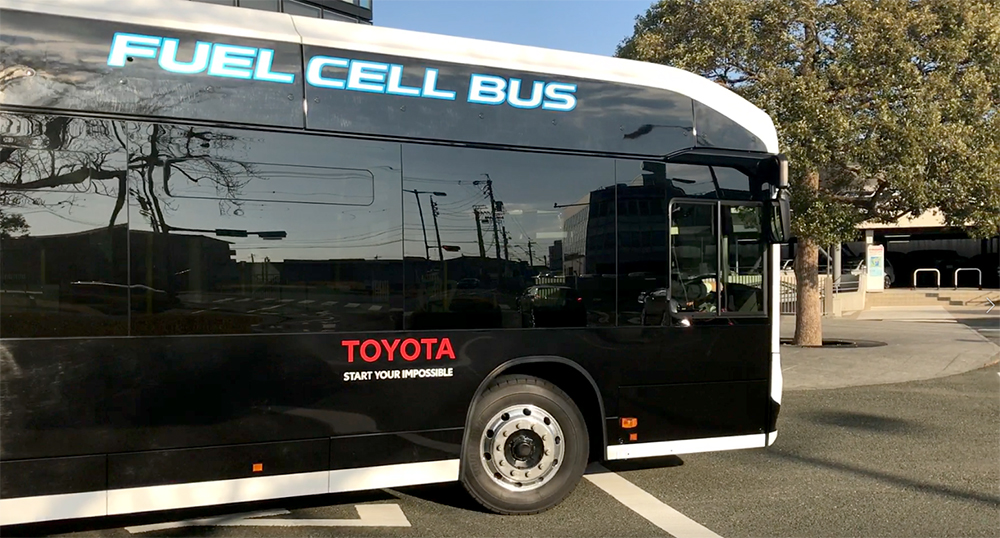
Toyota says the fuel-cell bus is around the same price of a new diesel bus after government assistance. They also say they are working closely with the Japanese government to boost hydrogen fuel supply and they are working on ways to speed up the fueling times. Toyota expects hydrogen fuel prices to drop and fueling times to be similar to a diesel bus.
Reducing the cost to purchase and operate the bus are both keys to its survival, yet Japan seems pretty set on making it a reality. The Japanese government has ordered 100 of the buses to be used for the games and Toyota told us they are in talks with hundreds of other companies and countries who hope to use the technology as well.
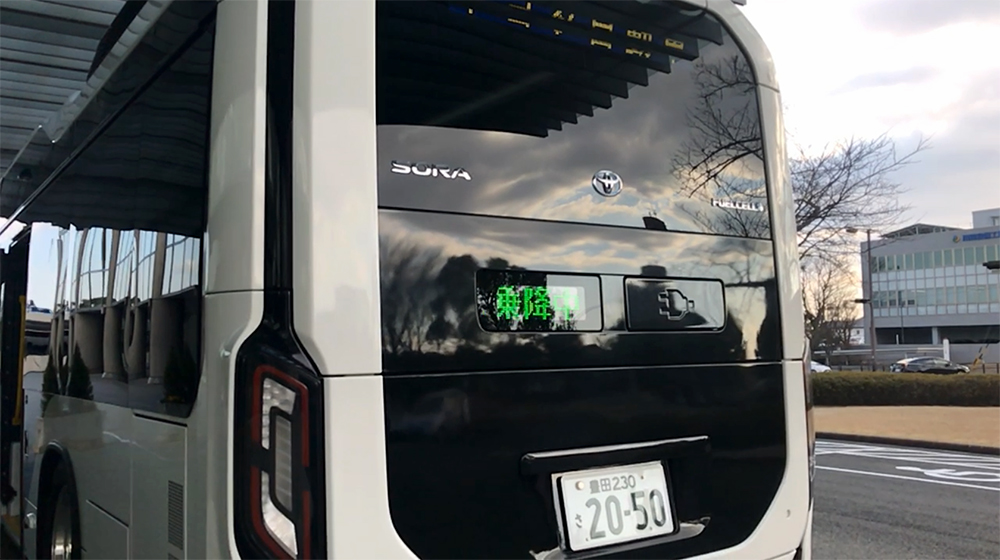
With all these benefits, the Toyota Sora bus may seem like a very futuristic bus idea right now, however, after people experience it at the 2020 Tokyo Olympic games, they will want the dream to become a reality.
Read more of Tim’s truck coverage at Pickup Truck Talk. and follow him on Twitter at @testerdahl.
